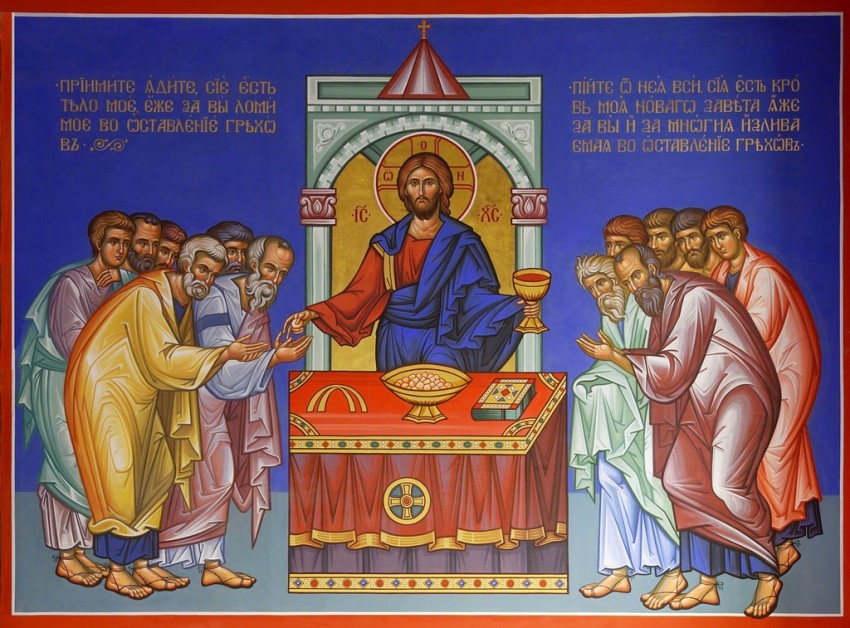➕ Table of Contents
The question of whether Orthodox and Protestant believers should be granted access to the Sacrament of the Eucharist within the Catholic Church is a complex and deeply spiritual matter. It touches on the essence of Christian unity, the nature of the Church, and the meaning of the Eucharist as a sacrament of communion. This reflection seeks to explore the theological, pastoral, and ecumenical dimensions of this issue, considering the profound significance of faith, the mystery of Christ's Body, and the call to reconciliation and unity among all Christians.
Communion in Faith as the Pinnacle of Christian Unity
Communion in faith represents the highest level and deepest expression of Christian unity. However, even with communion in faith, it remains essential to strive for the restoration of full communion in the sacraments. A Catholic cannot participate in the sacraments of another church or Christian community if they are incomplete—lacking the fullness of the spirit of apostolic tradition.
On the other hand, the Catholic Church can freely administer its sacraments to non-Catholics who, in full faith and understanding, are prepared to receive them—even if the official teaching of their congregation differs from Catholic doctrine. Such sacramental participation does not imply canonical incorporation of the believer into Catholic jurisdiction but is an act of communion in faith.
The Catholic Church, committed to fostering Christian unity, must work diligently to restore the full ancient teaching of the Sacrament of the Eucharist in churches and communities that have lost it. This goal can be pursued through specialized conferences, seminars, personal meetings, as well as the publication and dissemination of relevant literature.
A differentiated approach will be required for each church and denomination.
This is no simple task, but the ultimate goal—the restoration of Christian unity—is worth the effort and time invested. After all, who else will take up this responsibility if not Catholics?
Applying the Same Principle to the Orthodox Church
A similar principle applies to the Orthodox Church. The Catholic Church, even unilaterally, should permit its faithful to freely participate in sacraments recognized by the Orthodox Church and grant Orthodox Christians open access to the Eucharist, provided they meet the conditions established by the Catholic Church for participation in the sacraments.
Given the low level of awareness among members of the Orthodox Church about Catholic ecumenical initiatives, it would be beneficial to regularly conduct informational campaigns targeting them. These could include conferences, seminars, personal meetings, open letters, articles in the press, publications of books and guides, and the creation of multimedia presentations.
The Eucharist as the Sacrament of Communion
The Eucharist is called the Sacrament of Communion because, by uniting with Christ, we are united with one another, forming a single mystical Body—the Church. “Where two or three are gathered in My name, there am I among them.” In some ancient manuscripts, this quotation is expressed through negation: “There is no gathering of two or three in My name where I would not be among them.” Gathering in the name of Christ is the primary and sole condition. “Where Jesus Christ is, there is the Catholic Church” (St. Ignatius of Antioch).

The Painful Reality of Schism
The schism—so painful, so bloody—became the price the Church had to pay to understand this. “Broken for you…” The division of the Church, stained with the blood of Christ Himself, became a symbol of the Lord’s suffering on the cross for the redemption of His bride. Had the Body not been broken, we might have sunk into legalism, content with merely outward conformity to the Lord’s Body, as was the case with the Pharisees. Yet the gates of hell did not prevail against the Church, and now we are awakened to a true vision of her.
Eucharistic Ecclesiology as the Right Understanding of the Lord’s Body
Eucharistic ecclesiology, therefore, represents the proper understanding of the Lord’s Body. Everyone who grows into it through faith becomes a true part of it.
All who believe are nourished by the Lord’s redeeming sacrifice. And everyone who is nourished by Him will abide forever. “For My flesh is true food, and My blood is true drink.”
Faith transforms the Eucharist into a full and authentic experience—communion with Christ and His Church. “Whoever believes in Me shall not perish but have eternal life.” Faith is our Eucharist—true and all-encompassing.
Living Out Our De Facto Unity
Having come to understand this already existing, profound unity in fact, all that remains is to embody it in practice through mutual participation in the sacraments.
March 27, 2006

 DE
DE  RU
RU  UK
UK